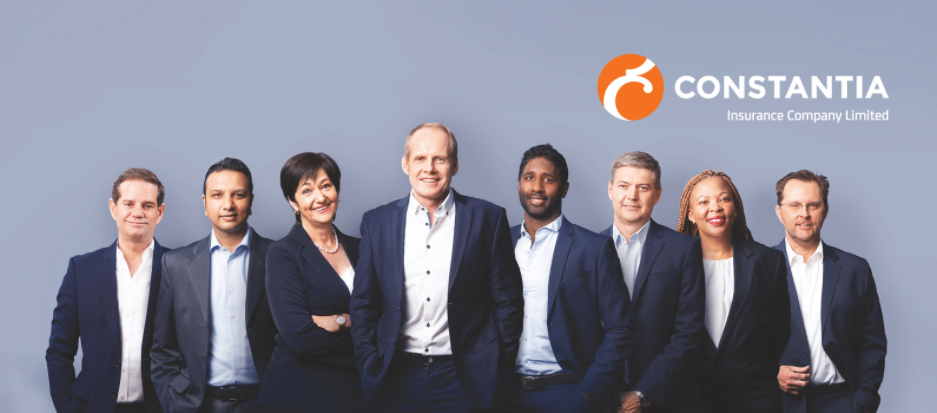
Andries Labuschagne, the MD of InsureAfrica takes us through the opportunities in the motor VAPS market. Brokers really have an opportunity here.
Tony: Please tell me about the InsureAfrica value proposition and the type of solutions you offer.
Andries: We are an underwriting manager, doing more of the specialized risks and we operate within the long term and the short-term environment. Today, I will focus more on the motoring side. From a value proposition point of view, we are very much partnership focused, that is our ethos. Being an underwriting manager, we distribute through third parties, and so it is very important that we manage that relationship in such a way that it’s easy for our partners to do business with us and that we enable their business models. We have designed products that are often associated with risk gaps that you will find in the comprehensive market or the mainstream policies. A strong partnership focus also means that we have the interests of the customer in mind. We focus on being transparent and have open communication with our customers. The products that we offer on the motoring side of our business is typically associated with your mechanical breakdown insurance, more commonly known as warranties, service plans, maintenance plans, scratches and dent policies, and Tyre & Rim cover. All those risks that are not covered by your mainstream or comprehensive policies.
Tony: You mentioned the gaps, how do you fit these into the broader insurance environment? For example, some policies would have VAP’s included while others won’t. How do you navigate that?
Andries: If we look at a typical comprehensive motor policy, you’ve got your perils or your fire cover, your accidental damage cover etc. I find that many consumers still believe that if you have a mechanical failure, it’s going to be covered by their comprehensive insurance. So, they don’t know that they’re not covered for those types of things. Some consumers may also say, “well my Manufacturer, the people they have bought the vehicle from, will cover those type of incidences”. We then must explain to them what happens if they go out of the Manufacturer’s guarantee, that they are not all the same and that they are not covered for everything on a Manufacturer’s warranty., I think there are a lot of consumers that assume that either they are covered with comprehensive insurance or, they think their Manufacturer covers everything, so end-to-end cover is the belief system.
The other argument that I think is important for consumers to know, and I’m talking about the comprehensive policies, I see a trend developing where consumers have fixated on the price of comprehensive insurance. Inadvertently, they then increase their excesses, often forgetting that this is self-insurance, so they take on part of the risk themselves. So, in that instance, for a relatively inexpensive premium, you can have a little scratch and dent cover which could cover the smaller incidences. Again, a nice fit and not a very expensive product. But again, I don’t think consumers always think of it and it emphasizes, for me at least, on the fact that as financial advisors, we need to be far more involved in understanding where the possible risks exist, and what we can do to mitigate those risks.
Then the service plan side and the maintenance plan sides is another side of the coin, because the service plans are all those items that need replacing with regular intervals and mileages. And even in that, the service plan doesn’t cover brakes. So, I do see value in these products, I do believe it’s not for every consumer. But I think if you understand your customer, and you understand where the pain points are, all these products could be a nice way to ease those pain points.
Tony: Yes, for example the secondhand car market is massive. And most of those people in that secondhand car market are exposed to buying an unknown risk. Because you haven’t driven that car before. It hasn’t been your car; you don’t know how well it was serviced. But just coming to that, there’s this issue in the insurance and in the motor environment, about the right to repair. What is your view on the right to repair and how does that impact business?
Andries: So, I think, first, we must acknowledge it’s early days. From a consumer perspective, there are pros and cons. From a positive perspective it gives consumers the option to go to other repairers. But there’s a greater onus on the owner of the vehicle to ensure that they are going to reputable repairers. So, I think maybe inadvertently, we are making it a little bit more difficult for the consumer to have certain assurances in terms of the quality of the repair, the guarantees that are going to be carried on those repairs.
From an InsureAfrica perspective, we’ve been doing this for quite a while. We mostly trade in the secondhand market on secondhand vehicles, if you’re looking at warranties etc. We do have new vehicles insofar as maintenance plans and service plans. But because you get to know the repairers, I think from an InsureAfrica point of view, we’ve kind of been playing in the right to repair space for quite some time. For example, we find reputable suppliers, that are reliable, who are going to offer the consumer value at a reasonable price and provide decent quality components and quality workmanship. So, from an InsureAfrica perspective, I don’t see anything changing dramatically. One thing that has changed in an environment where we do have a maintenance plan on newer cars, we will now rather move that car to a specialist repairer. And people find that interesting, but they are very good repairers who have left the corporate environment and have started their own businesses.
So, I think from a social construct point of view in South Africa, it serves such an important purpose, because unemployment rates are so incredibly high, and we need businesses, and we need people employed. It offers the small business an opportunity to create something beautiful, if they ensure that the quality and the workmanship is up to scratch and on par with what the consumer experienced at the franchise dealerships.
So, all in all, from my personal perspective, I certainly support the programme. It gives smaller entrepreneurs opportunities, which ultimately lead to job creation and greater participation in our economy.

Committed to co-creating solutions and unlocking shared value.
Our knowledgeable teams care deeply about our partners’ needs and are driven by a powerful purpose of enabling our partners’ success. With an experienced executive team at the helm, we take a collaborative approach to helping our partners achieve sustainable growth by
co-creating solutions and unlocking shared value.
Constantia Insurance Company Limited is a licensed non-life insurer and an authorised Financial Services Provider (FSP 31111).
Constantia Life and Health Assurance Company Limited is a licenced life insurer and an authorised Financial Services Provider (FSP 49986).
Constantia Life Limited is a licenced life insurer.
Tony: So, in closing, there’s a variety of different products that you offer and different applications of those. Do you offer broker training? Because the broker, underwriting skills and all of that are also just as important when it comes to these sorts of, out of the ordinary type of products.
Andries: You make such an important point; I think these products tend to be rather technical. As an insurance practitioner, I’ve been in insurance for the last twenty years and the motoring game for the last 30 years. I do believe that requires different skill sets, because the components and typically the way components are referred to, is often from a technical perspective. And as much as we try and make that accessible, there’s just certain items that you can’t explain any better. So, for us training is a vital part of our business.
In our interactions with our brokers and with our partners, we need to try and explain as best we can, because often the person sending the product is not technically minded. So, we do quite extensive training and we try and explain the principles as best as we can.
We also offer them an opportunity to speak to our claim’s advisors, because they are all technically qualified. We tend to be rather circumspect in terms of who we employ. We try and employ somebody who has experience in a workshop environment on the bench, and he’s repaired components. That I think, stands us in good state in understanding exactly what is required.
From a consumer perspective, we need greater emphasis on education, training, and understanding of these products. Because a lot of these products get distributed at point of sale, or when you’re buying a vehicle, we need to explain to the customer exactly what they are getting, what their expectations should be, maybe even help ensure that they understand what the differences are between the different programmes -for example a maintenance vs. service plans, So, the customer walks out with the right expectation, and ultimately, from a claim’s perspective, the outcomes are favourable for everybody.
So yes, we train our partners quite extensively.
Tony: I think knowledge sharing by brokers with the client is highly underrated as a relationship builder, and they should definitely grab that opportunity.
Andries: I concur. I sincerely believe that in this digital age and what you’re experiencing at the moment, if you’re not going to differentiate yourself from that personal interaction or interview, I think you’re going to have difficulty in the future. But, that’s my personal opinion.

